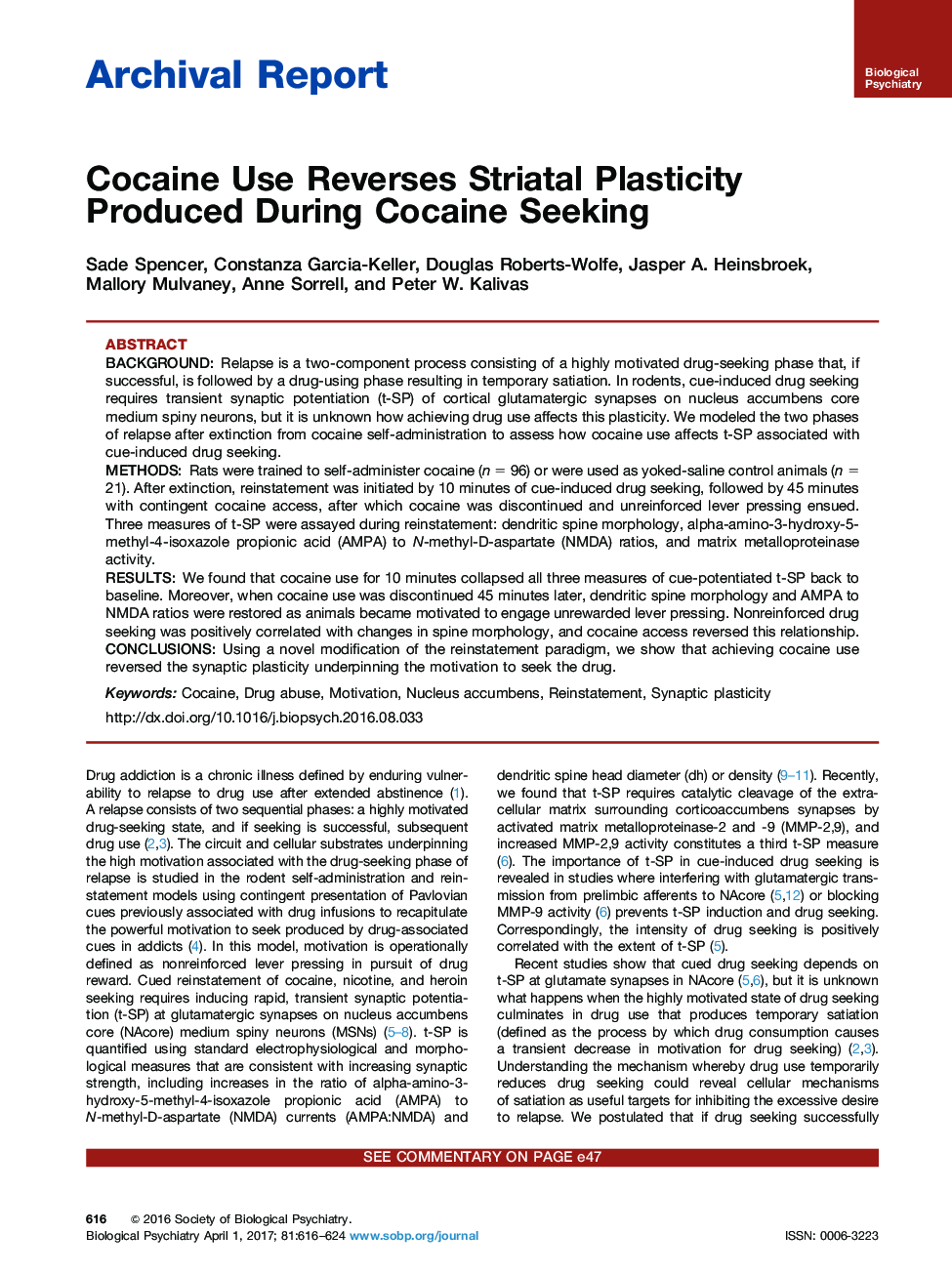| کد مقاله | کد نشریه | سال انتشار | مقاله انگلیسی | نسخه تمام متن |
|---|---|---|---|---|
| 5720570 | 1411318 | 2017 | 9 صفحه PDF | دانلود رایگان |
BackgroundRelapse is a two-component process consisting of a highly motivated drug-seeking phase that, if successful, is followed by a drug-using phase resulting in temporary satiation. In rodents, cue-induced drug seeking requires transient synaptic potentiation (t-SP) of cortical glutamatergic synapses on nucleus accumbens core medium spiny neurons, but it is unknown how achieving drug use affects this plasticity. We modeled the two phases of relapse after extinction from cocaine self-administration to assess how cocaine use affects t-SP associated with cue-induced drug seeking.MethodsRats were trained to self-administer cocaine (n = 96) or were used as yoked-saline control animals (n = 21). After extinction, reinstatement was initiated by 10 minutes of cue-induced drug seeking, followed by 45 minutes with contingent cocaine access, after which cocaine was discontinued and unreinforced lever pressing ensued. Three measures of t-SP were assayed during reinstatement: dendritic spine morphology, alpha-amino-3-hydroxy-5-methyl-4-isoxazole propionic acid (AMPA) to N-methyl-D-aspartate (NMDA) ratios, and matrix metalloproteinase activity.ResultsWe found that cocaine use for 10 minutes collapsed all three measures of cue-potentiated t-SP back to baseline. Moreover, when cocaine use was discontinued 45 minutes later, dendritic spine morphology and AMPA to NMDA ratios were restored as animals became motivated to engage unrewarded lever pressing. Nonreinforced drug seeking was positively correlated with changes in spine morphology, and cocaine access reversed this relationship.ConclusionsUsing a novel modification of the reinstatement paradigm, we show that achieving cocaine use reversed the synaptic plasticity underpinning the motivation to seek the drug.
Journal: Biological Psychiatry - Volume 81, Issue 7, 1 April 2017, Pages 616-624
